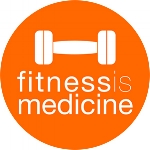6 Tips for Sleeping Better
Exercise improves sleep. It is a proven fact that getting the proper amount of exercise helps our bodies to fall asleep more quickly and sleep more soundly. Exercise may also help nighttime leg activity. If you have restless leg syndrome (RLS), or Periodic Leg Movements (PLM), exercise can help. Studies show that adults who participate in regular physical activity for 30-60 minutes for a minimum of 5 days a week will see the most benefits. Although these studies suggest that an acute bout of exercise may produce some positive results, long term adherence to an a regular exercise program does produce the most benefit in terms of decreasing these symptoms.
1. Exercise: As stated above, adequate exercise is a proven way to improve sleep. Timing your exercise can also make a difference. Completing your exercise close to bedtime can have negative effects on your sleep patterns. Exercise increases your body temperature, energizes you, and can end up keeping you awake past an appropriate bedtime. Try to commit to an earlier workout routine, leaving you energized throughout the day and pleasantly tired at bedtime.
2. Diet: A healthy diet has shown to have positive effects on your sleep. Be sure to eat plenty of fresh fruits and vegetables and drink enough water. Limit the amount of sugar you eat. Watch your caffeine intake. If you really suffer from sleep problems, it may be advisable to avoid caffeine altogether.
3. Regular Routine: Life is busy and every day is not the same. I get that. However, if you can move toward a regular bedtime and a regular wake up time your body will respond favorably.
4. Meditation: This is something that is hard for me. It can be difficult for many people. But it also has amazing benefits, not only for sleep, but for concentration, mood, attitude, productivity, and self-awareness. If you’re unsure how to incorporate this into your day, start slow, just like exercise. Carve out 5 minutes out of your day, ideally before you go to bed, to find some quiet time for yourself. Focus on a mantra – a word, or a phrase, or an image. Practice your breathing techniques. Above all, focus on something peaceful and positive. At the very least, you may find yourself more relaxed than when you began!
5. Alternative Therapies: We have access to so many different wonderful therapies that can assist in our sleep efforts including (but definitely not limited to), Acupuncture, Massage, Psychotherapy, Jin Shin Jyutsu, Reiki, and Herbal medicine.
6. Medical Intervention: If you have tried all of these things and you’re STILL not getting restful sleep, it may be time to speak with your doctor. It is estimated that as many as 1 in 5 adults have a mild form of sleep apnea and 1 in 15 suffer from a moderate form. There are many signs and symptoms that may, at the very least, warrant a conversation with your primary care physician. These include, but are not limited to, snoring, waking up breathless, daytime sleepiness, obesity, morning headaches, hypertension, depression, and reflux.
Lack of sleep can have lasting effects on our health. Take the necessary steps to get a good night’s sleep. Your body (and your friends and family!) will thank you for it!




